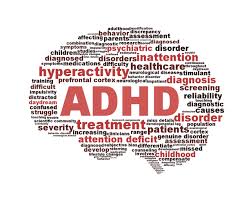My mom always tells me that if I sleep with my phone by my head it’s bad for me. I always tell her she doesn’t know what she’s talking about but maybe she’s right. Is too much cell phone screen time bad for us?
(link to image above)
According to the first source I read while researching this question, cell phones have high levels of radiation. This source also says that cell phone use can lead to cancer because of the high levels of radiation in cell phones. After reading this I was very alarmed because I never thought that cell phone use could lead to cancer. While reading another article I was explained that many scientists do believe that cell phone use could be linked to tumor development. I was wondering what type of proof they have of cancer being linked to cell phone use but while reading farther in the article I learned that because cell phones are a relatively recent addition to our lifestyle we couldn’t not have proof they cause cancer. Cancer takes 10-20 years to develop so scientists will not be able to come to any proof that they cause cancer yet. Scientists have come out and said that the longer people are exposed to the radiation of the cell phones the more at risk they are of possible getting cancer. I wasn’t surprised to learn that children are most at risk for possibly developing cancer than adults are. This is because children have been exposed to cell phones for a longer period of time. I am anxious to find out if they really do lead to cancer in the future. If this is true than that is a really scary issue that is going to affect most of the population, especially our generation. I don’t know if there is much that people can say to get people to stop using cell phones if there is not actual proof that they cause cancer. I’m hoping that this prediction is wrong and that it does not cause cancer but if it does I cannot even image what would happen to our society as a whole.
After reading about all of this I will definitely take the steps to try to keep my cell phone not close to me at all times, but I don’t know how realistic it would be to never use my cell phone. Cell phones have become a staple in most everyones lives and I could not imagine that everyone will stop using them if there is not proof out there that they 100% cause cancer. For now I just hope that this is not true and cell phones will not cause us cancer in the future.
(link to image above)
Bibliography
FREE SHIPPING ON PHONES & DEVICES WITH ALL NEW ACTIVATIONS! CALL 1-877-413-5903.” Smartphones & Cell Phones | Compare Our Best Cell Phones & Smartphones. N.p., n.d. Web. 02 Dec. 2016.
ghchealth. “5 Ways Cell Phones Harm Your Health.” Dr. Group’s Natural Health & Organic Living Blog. N.p., 02 Feb. 2015. Web. 02 Dec. 2016.
NC4HR. “Can Cell Phones Harm Our Health?” National Center For Health Research. N.p., 12 Aug. 2016. Web. 02 Dec. 2016.
5 Dangers of Sleeping Near Your Cell-Phone at Night – FitHog.” FitHog. N.p., n.d. Web. 02 Dec. 2016.




















